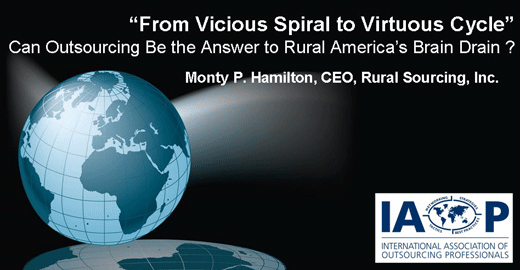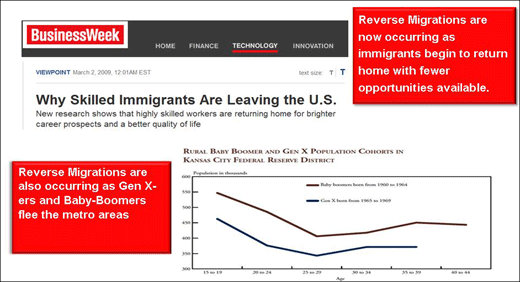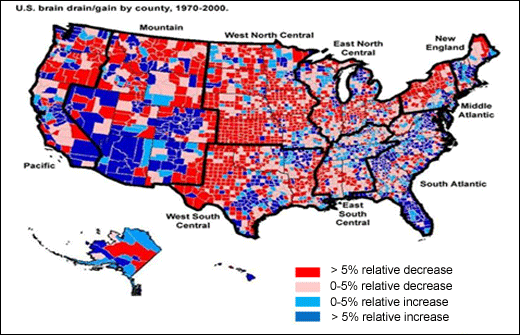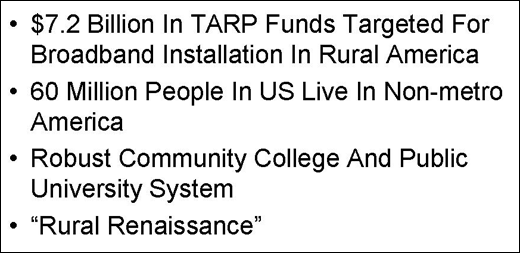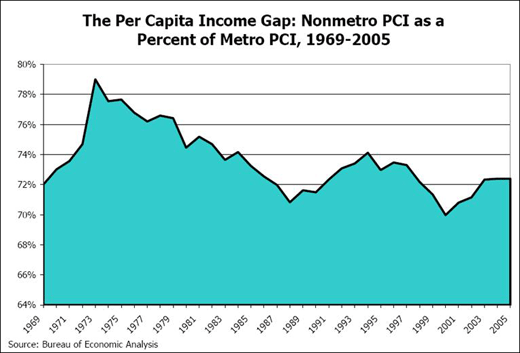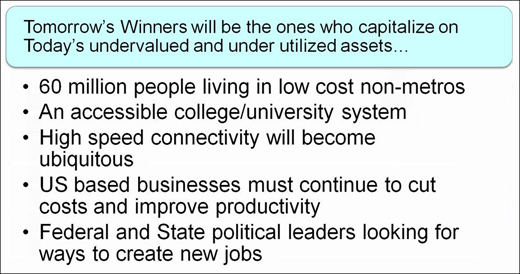IT Business Edge contributor Don Tennant spoke with Monty Hamilton, CEO of Atlanta-based Rural Sourcing Inc., shortly after the 2010 Outsourcing World Summit last month. Hamilton presented at the event, where he found high receptivity to the idea of outsourcing IT work to low-cost, non-urban areas in the U.S. as an alternative to offshore outsourcing.
Hamilton said RSI grew 300 percent last year, with outsourcing centers in Jonesboro, Ark., and Greensboro, N.C. His goal is to open 30 centers over the next five to six years, and his current focus is on Georgia and Iowa. RSI currently has about 15 clients, ranging from start-ups to Fortune 500 companies. But the sweet spot, Hamilton said, is the midmarket.
“Those are the companies that are primarily going to have U.S.-based businesses,” he said. “They’re not going to have the patience or wherewithal or investment dollars to go make an offshore operation in India work. But they’re going to have to figure out how to stretch their IT dollars and be more cost-efficient. For them, outsourcing is something they haven’t done a lot, or even looked at in the past.”
Click through for highlights from Rural Sourcing Inc. CEO Monty Hamilton’s presentation at the 2010 Outsourcing World Summit in Lake Buena Vista, Fla., Feb. 15-17, 2010.
Hamilton: ‘What we’re seeing is a reverse-migration trend. It happens every recession-as long as things are going well, we all flock to the big cities for big opportunities. Once the food begins to dry up and the weather doesn’t look so good anymore, we return home.’
The high unemployment rate is compelling young people from non-metro areas to stay close to home, raising the local availability of talent.
The final three decades of the 20th century saw a rural brain drain, most notably in the Midwest. Hamilton: ‘I’m sure we’ll see in the next census that people are moving back to their roots and their family infrastructure.’
Hamilton: ‘There was no denying [among the attendees at the 2010 Outsourcing World Summit] that this is a viable model, and a place that companies are going to want to take a look at.’
The cost of labor in non-metro areas is 60 percent to 70 percent of the cost in metro areas, making rural sourcing an economically attractive option.
Hamilton: “My bandwagon is what I call Outsourcing 2.0, which is not just looking at India as my default choice. … My goal is to put ‘Backyard U.S.’ as one of the check boxes people will look at.”


